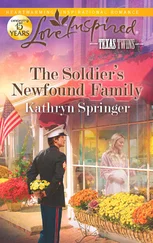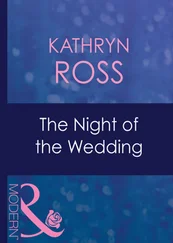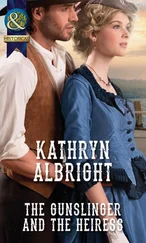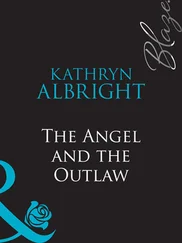“All the colored women you’ve interviewed, they’ve been real nice, haven’t they?”
“Yes,” I’d said. “Very nice.”
Gretchen looked me straight in the eye. “They hate you. You know that, right? Every little thing about you. But you’re so dumb, you think you’re doing them a favor.”
“You don’t have to do this,” I said. “You volunteered—”
“You know the nicest thing a white woman’s ever done for me? Given me the heel on her bread. The colored women coming in here, they’re just playing a big trick on you. They’ll never tell you the truth, lady.”
“You don’t have any idea what the other women have told me,” I said. I was surprised by how dense my anger felt, and how easily it sprang up.
“Say it, lady, say the word you think every time one of us comes in the door. Nigger. ”
Aibileen stood up from her stool. “That’s enough, Gretchen. You go on home.”
“And you know what, Aibileen? You are just as dumb as she is,” Gretchen said.
I was shocked when Aibileen pointed to the door and hissed, “ You get out a my house. ”
Gretchen left, but through the screen door, she slapped me with a look so angry it gave me chills.
TWO NIGHTS LATER, I sit across from Callie. She has curly hair, mostly gray. She is sixty-seven years old and still in her uniform. She is wide and heavy and parts of her hang over the chair. I’m still nervous from the interview with Gretchen.
I wait for Callie to stir her tea. There’s a grocery sack in the corner of Aibileen’s kitchen. It’s full of clothes, and a pair of white pants hangs over the top. Aibileen’s house is always so neat. I don’t know why she never does anything with that sack.
Callie begins talking slowly and I start to type, grateful of her slow pace. She stares off as if she can see a movie screen behind me, playing the scenes she’s describing.
“I worked for Miss Margaret thirty-eight years. She had her a baby girl with the colic and the only thing that stopped the hurting was to hold her. So I made me a wrap. I tied her up on my waist, toted her around all day with me for a entire year. That baby like to break my back. Put ice packs on it ever night and still do. But I loved that girl. And I loved Miss Margaret.”
She takes a sip of her tea while I type her last words. I look up and she continues.
“Miss Margaret always made me put my hair up in a rag, say she know coloreds don’t wash their hair. Counted ever piece a silver after I done the polishing. When Miss Margaret die of the lady problems thirty years later, I go to the funeral. Her husband hug me, cry on my shoulder. When it’s over, he give me a envelope. Inside a letter from Miss Margaret reading, ‘Thank you. For making my baby stop hurting. I never forgot it.’ ”
Callie takes off her black-rimmed glasses, wipes her eyes.
“If any white lady reads my story, that’s what I want them to know. Saying thank you, when you really mean it, when you remember what someone done for you”—she shakes her head, stares down at the scratched table—“it’s so good.”
Callie looks up at me, but I can’t meet her eyes.
“I just need a minute,” I say. I press my hand on my forehead. I can’t help but think about Constantine. I never thanked her, not properly. It never occurred to me I wouldn’t have the chance.
“You feel okay, Miss Skeeter?” Aibileen asks.
“I’m . . . fine,” I say. “Let’s keep going.”
Callie goes on to her next story. The yellow Dr. Scholl’s shoebox is on the counter behind her, still full of envelopes. Except for Gretchen, all ten women have asked that the money go toward Yule May’s boys’ education.
THE PHELAN FAMILY stands tense, waiting on the brick steps of State Senator Whitworth’s house. The house is in the center of town, on North Street. It is tall and white-columned, appropriately azalea-ed. A gold plaque declares it a historical landmark. Gas lanterns flicker despite the hot six o’clock sun.
“Mother,” I whisper because I cannot repeat it enough times. “Please, please don’t forget the thing we talked about.”
“I said I wouldn’t mention it, darling.” She touches the pins holding up her hair. “Unless it’s appropriate.”
I have on the new light blue Lady Day skirt and matching jacket. Daddy has on his black funeral suit. His belt is cinched too tight to be comfortable much less fashionable. Mother is wearing a simple white dress—like a country bride wearing a hand-me-down, I suddenly think, and I feel a rush of panic that we have overdressed, all of us. Mother’s going to bring up the ugly girl’s trust fund and we look like countryfolk on a big damn visit to town.
“Daddy, loosen your belt, it’s hitching your pants up.”
He frowns at me and looks down at his pants. Never once have I told my daddy what to do. The door opens.
“Good evening.” A colored woman in a white uniform nods to us. “They expecting y’all.”
We step into the foyer and the first thing I see is the chandelier, sparkling, gauzy with light. My eyes rise up the hollow twirl of the staircase and it is as if we are inside a gigantic seashell.
“Why, hello there.”
I look down from my lollygagging. Missus Whitworth is clicking into the foyer, hands extended. She has on a suit like mine, thankfully, but in crimson. When she nods, her graying-blond hair does not move.
“Hello, Missus Whitworth, I am Charlotte Boudreau Cantrelle Phelan. We thank you so much for having us.”
“Delighted,” she says and shakes both my parents’ hands. “I’m Francine Whitworth. Welcome to our home.”
She turns to me. “And you must be Eugenia. Well. It is so nice to finally meet you.” Missus Whitworth grasps my arms and looks me in the eyes. Hers are blue, beautiful, like cold water. Her face is plain around them. She is almost my height in her peau de soie heels.
“So nice to meet you,” I say. “Stuart’s told me so much about you and Senator Whitworth.”
She smiles and slides her hand down my arm. I gasp as a prong of her ring scratches my skin.
“There she is!” Behind Missus Whitworth, a tall, bull-chested man lumbers toward me. He hugs me hard to him, then just as quickly flings me back. “Now I told Little Stu a month ago to get this gal up to the house. But frankly,” he lowers his voice, “he’s still a little gun-shy after that other one.”
I stand there blinking. “Very nice to meet you, sir.”
The Senator laughs loudly. “You know I’m just teasing you,” he says, gives me another drastic hug, clapping me on the back. I smile, try to catch my breath. Remind myself he is a man with all sons.
He turns to Mother, solemnly bows and extends his hand.
“Hello, Senator Whitworth,” Mother says. “I’m Charlotte.”
“Very nice to meet you, Charlotte. And you call me Stooley. All my friends do.”
“Senator,” Daddy says and pumps his hand hard. “We thank you for all you did on that farm bill. Made a heck of a difference.”
“Shee-oot. That Billups tried to wipe his shoes on it and I told him, I said, Chico, if Mississippi don’t have cotton, hell, Mississippi don’t have nothing .”
He slaps Daddy on the shoulder and I notice how small my father looks next to him.
“Y’all come on in,” the Senator says. “I can’t talk politics without a drink in my hand.”
The Senator pounds his way out of the foyer. Daddy follows and I cringe at the fine line of mud on the back of his shoe. One more swipe of the rag would’ve gotten it, but Daddy’s not used to wearing good loafers on a Saturday.
Mother follows him out and I give one last glance up at the sparkling chandelier. As I turn, I catch the maid staring at me from the door. I smile at her and she nods. Then she nods again, and drops her eyes to the floor.
Читать дальше












